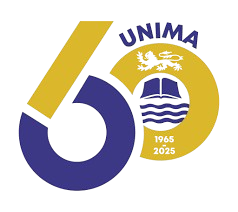Short Course Equips Researchers with Tools for Hydro-Climate Extremes Analysis
On 18 July 2025, the Centre for Resilient Agri-Food Systems (CRAFS), through the ACEWATER-III Project run by Stellenbosch University in partnership with 20 institutions under the AUDA-NEPAD Network of Water Centres of Excellence and the EU Delegation to South Africa, successfully delivered a graduate short course on Hydro-Climate Extremes Data Analysis Using R. The training aimed to enhance research and learning in vital areas of resilient agri-food systems.
The one-week course, held from July 14th to 18th, 2025, was delivered in a hybrid format at the University of Malawi’s Brown Chimphamba Laboratory and virtually, attracting 70 participants from Malawi and other African countries.
The short course was facilitated by CRAFS members and academic staff from the School of Natural and Applied Sciences, including Professor Cosmo Ngongondo, Dr. Maurice Monjerezi, Dr. Elias Mwakilama, and Dr. Halima Twabi.
Participants received practical training in three key areas: Fundamentals of R and RStudio Programming, Modelling and Visualising Time Series Data in R, and Hydro-Climate Extreme Data Analysis Models.
Commenting on the course outcomes, Dr. Elias Mwakilama said the training provided essential skills for handling hydro-climate extreme data using advanced statistical models. He explained, “The inclusion of RStudio programming and forecasting models during the first three days greatly helped participants to prepare, analyse, and model hydro-extreme datasets, which enabled them to turn historical patterns into actionable forecasts through simulations and result interpretations.”
One of the training participants, Martha Mmassy Nikodemus, a postgraduate student at the University of Dar es Salaam, highlighted the impact of the training on her academic work, stating that “The knowledge gained will enhance my data analysis skills, enabling me to analyse historical climate trends effectively and contribute professionally in the environmental field.”
The short course reflects CRAFS’ ongoing commitment to building research capacity and fostering practical skills for climate resilience in the agri-food sector across Africa.




